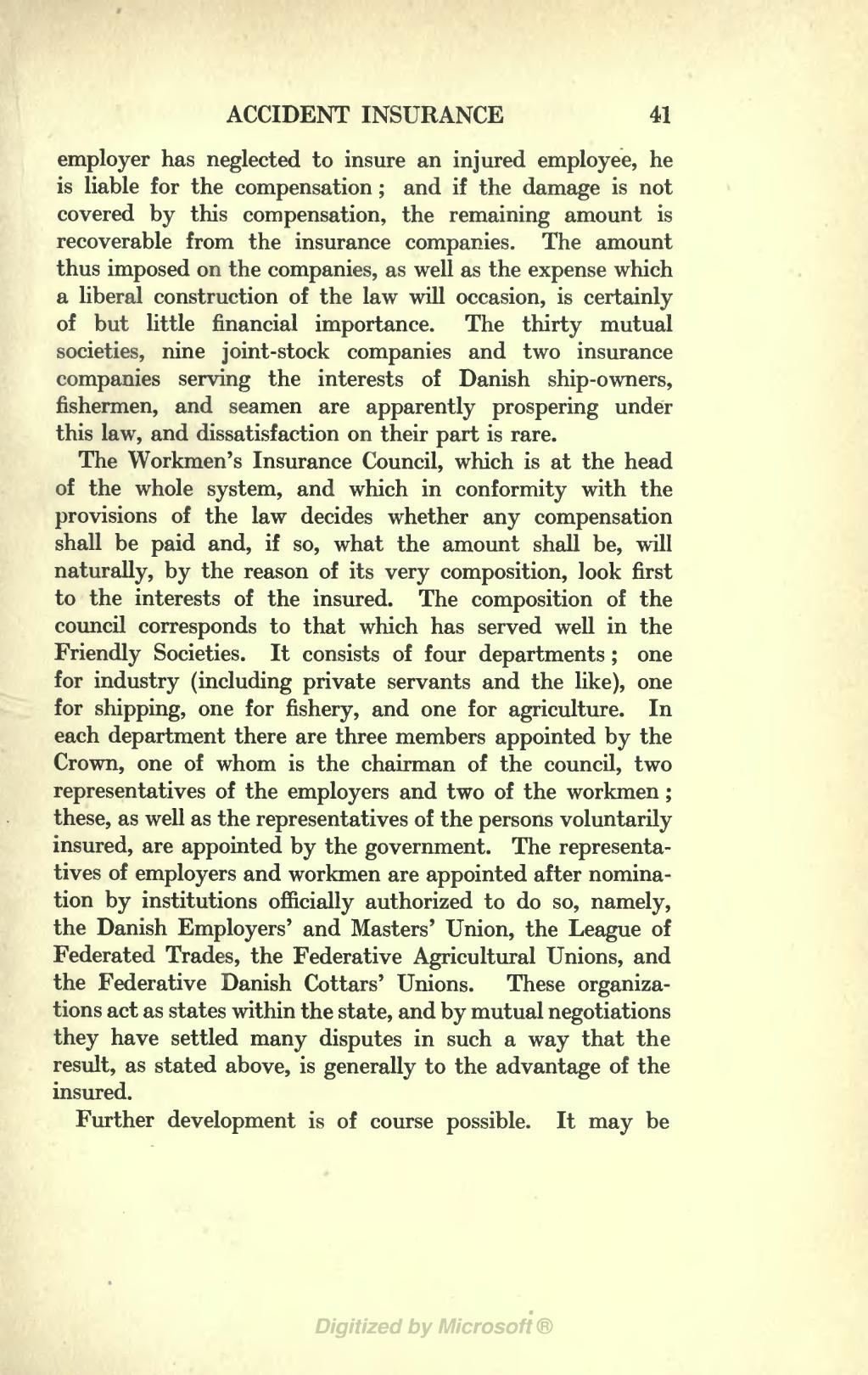employer has neglected to insure an injured employee, he is liable for the compensation; and if the damage is not covered by this compensation, the remaining amount is recoverable from the insurance companies. The amount thus imposed on the companies, as well as the expense which a liberal construction of the law will occasion, is certainly of but little financial importance. The thirty mutual societies, nine joint-stock companies and two insurance companies serving the interests of Danish ship-owners, fishermen, and seamen are apparently prospering under this law, and dissatisfaction on their part is rare.
The Workmen's Insurance Council, which is at the head of the whole system, and which in conformity with the provisions of the law decides whether any compensation shall be paid and, if so, what the amount shall be, will naturally, by the reason of its very composition, look first to the interests of the insured. The composition of the council corresponds to that which has served well in the Friendly Societies. It consists of four departments; one for industry (including private servants and the like), one for shipping, one for fishery, and one for agriculture. In each department there are three members appointed by the Crown, one of whom is the chairman of the council, two representatives of the employers and two of the workmen; these, as well as the representatives of the persons voluntarily insured, are appointed by the government. The representatives of employers and workmen are appointed after nomination by institutions officially authorized to do so, namely, the Danish Employers' and Masters' Union, the League of Federated Trades, the Federative Agricultural Unions, and the Federative Danish Cottars' Unions. These organizations act as states within the state, and by mutual negotiations they have settled many disputes in such a way that the result, as stated above, is generally to the advantage of the insured.
Further development is of course possible. It may be

